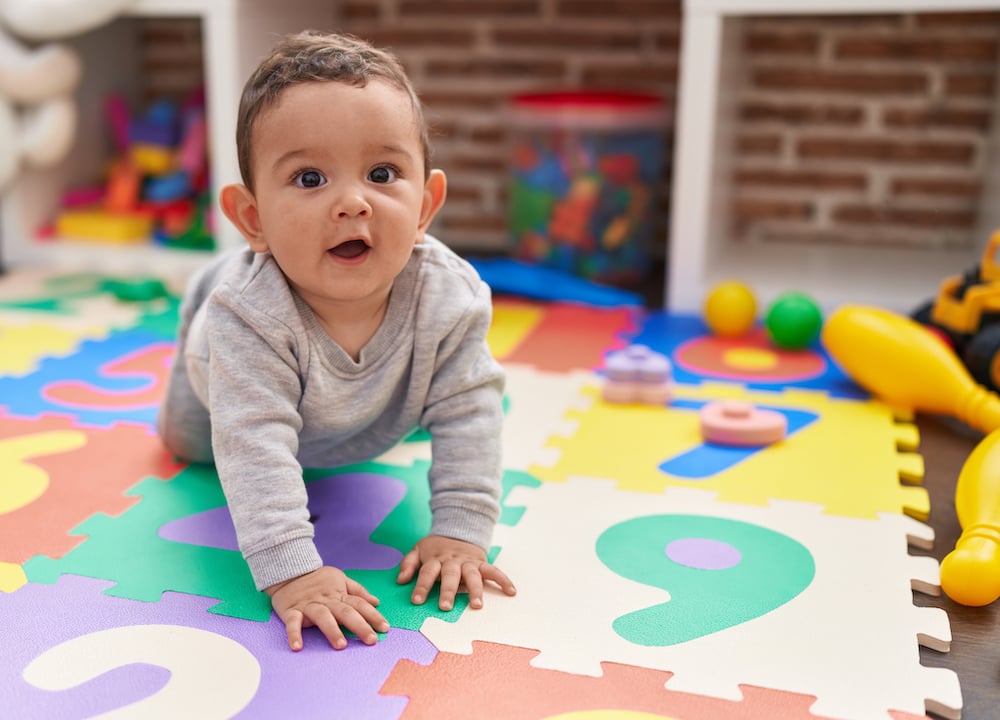In their first year of life, infants are building plenty of connections with their caregivers, bonding with them as they learn about their world. As Scholastic.com explains, when babies are nurtured and loved by trustworthy caregivers throughout this stage of life, they will build a sense of security that allows them to explore the world.
Within weeks after birth, babies can coo and smile to communicate with others. By three months, two-way communication can occur—often through games like peek-a-boo. By nine months, infants are typically even more open to learning about their surroundings: moving about, pointing at objects, and otherwise interacting with objects around them.
They may also show signs of stranger anxiety at that age or perhaps when a bit older. This means that they prefer their primary caregivers. So, while wanting to explore, they’re also forming attachments—making this a time when a sense of adventure is being balanced with the need for security, which is part of healthy development.
Not all infants develop socially at exactly the same pace, but these benchmarks will give you a sense of what to expect. As a parent, your goals can be to build a strong relationship with your infant that provides a secure base from which your baby can develop a “spirited drive to explore and experiment.”
How Daycare Supports Infant Social Development
Daycare can play a key role in helping infants develop socially, as well as emotionally. Through their experiences, they can make friends, share, and learn how to cooperate with others. They can also express their emotions, learn how to solve problems, resolve conflicts, and work together as a team.
Daycare centers like Horizon Education Centers are designed to help infants develop socially in a safe environment supervised by caring and responsive adults. They can even help infants navigate the feelings associated with separation anxiety to keep developing as independent youngsters.
With daycare, infants learn how to be part of a community outside of their family, connecting with others and expanding their network of relationships. This includes people from different cultures with different lifestyles, which helps them to gain an understanding of the greater world.
Infants can also benefit from role models; gain a sense of their own likes and dislikes; begin to choose their own activities; and increase the senses of independence and confidence they’ll need as they turn into toddlers—and then preschoolers, kindergarteners, and so forth.
Infant Care at Horizon Education Centers
Benefits of the infant care program at Horizon include a creative curriculum and engaging experiences led by experienced teachers that partner with parents for optimal possibilities. Developmentally appropriate toys are available in our sensory-rich environment to support growth.
So, how do infants develop socially? We’d be glad to talk with you about this process and how Horizon Education Centers provide the environment and experiences—including having a primary caregiver assigned to your baby—needed to assist with infants’ social, emotional, and physical growth.







